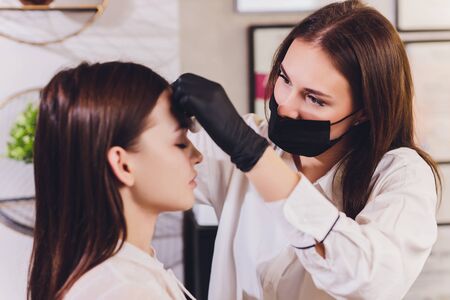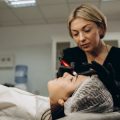Introduction to the UK’s Generational Attitudes
When examining the vibrant social landscape of the United Kingdom, it becomes clear that generational identity shapes much more than just musical preferences or slang; it fundamentally influences attitudes towards beauty, self-expression, and cosmetic enhancements. Both Gen Z and Millennials have come of age in a world where celebrity culture is omnipresent, but their responses to these influences reveal intriguing differences rooted in their unique life experiences and values. British Millennials, often characterised by a pragmatic approach shaped by economic uncertainty and the rise of social media, tend to view cosmetic procedures through a lens of self-improvement and personal empowerment. In contrast, Gen Z in the UK, growing up in an era defined by digital activism, inclusivity, and rapid social change, frequently prioritises authenticity and mental well-being over mere aesthetics. This introductory exploration sets the stage for understanding how these two generations navigate the pressures and possibilities presented by celebrity-endorsed cosmetic enhancements, reflecting broader cultural shifts within modern Britain.
Celebrity Culture in the UK: Then and Now
The British celebrity landscape has always been a reflection of the nation’s evolving values, aspirations, and social narratives. Over the years, there has been a striking shift in who captures the public’s imagination—and more importantly, who sets the tone for beauty standards and cosmetic choices among different generations.
For Millennials growing up in the late 1990s and early 2000s, celebrity influence was largely shaped by established figures gracing magazine covers, TV screens, and red carpets. Think of the iconic allure of Kate Moss’s effortlessly cool style, Victoria Beckham’s transformation from pop royalty to fashion icon, or Cheryl Tweedy’s relatable glamour. These celebrities often embodied aspirational but somewhat traditional British ideals: subtle enhancements, natural elegance, and an emphasis on poise over overt perfection.
Fast forward to Gen Z’s era, and the landscape looks refreshingly different. The rise of social media platforms like Instagram, TikTok, and YouTube has democratised fame and shifted the definition of “celebrity.” Today’s Gen Z icons—such as Maya Jama, Little Simz, and internet-born personalities like Molly-Mae Hague—connect with audiences through authenticity, inclusivity, and bold self-expression. Their influence is less about maintaining an untouchable image and more about embracing individuality, experimenting with aesthetics, and being open about their beauty journeys—including cosmetic enhancements.
| Millennial Icons | Gen Z Icons | |
|---|---|---|
| Era | Late 90s–2000s | 2015–Present |
| Main Platforms | TV, Magazines, Red Carpet Events | Instagram, TikTok, YouTube |
| Beauty Influence Style | Classic British Glamour Subtle Enhancements Aspirational Perfection |
Experimental Trends Authenticity & Transparency Inclusive Beauty Standards |
| Notable Figures | Kate Moss Victoria Beckham Cheryl Tweedy |
Maya Jama Molly-Mae Hague Little Simz |
This generational divide is not just about who is famous—it reflects how cultural attitudes towards beauty and cosmetic procedures have transformed. While Millennials admired a polished yet understated look influenced by legacy celebrities, Gen Z finds empowerment in diversity and personal narrative. These contrasting influences continue to shape how each generation approaches cosmetic treatments, contributing to uniquely British interpretations of beauty that evolve with every new wave of stardom.
![]()
3. Cosmetic Influences: British Celebrities Leading the Way
When it comes to shaping the beauty landscape in the UK, homegrown celebrities and influencers have truly taken centre stage. From Love Island alumni like Molly-Mae Hague to chart-topping musicians such as Little Mix, these familiar faces have not only normalised cosmetic enhancements but also made discussions around procedures more open and relatable. Their candid approach, often shared across Instagram Stories or candid YouTube vlogs, demystifies everything from lip fillers to non-surgical tweaks, making cosmetic choices appear as accessible as buying a new lipstick.
The Power of Relatability
For Gen Z, authenticity is everything. They gravitate towards influencers who are transparent about their beauty journeys—warts and all. When a British influencer openly discusses her experience with Botox or dissolving fillers, it helps destigmatise these treatments for younger followers. These real-life conversations break down taboos and foster an environment where Gen Z feels empowered to make informed decisions about their looks, rather than feeling pressured by unreachable standards.
Millennials: The Early Adopters
On the other hand, Millennials grew up with different beauty icons—think Cheryl Cole or Victoria Beckham—whose more polished appearances set early trends for enhancement. While this generation still seeks inspiration from celebrities, they tend to approach cosmetic procedures with a sense of caution and research, often influenced by long-term lifestyle bloggers or established media personalities who value subtlety and self-improvement over radical change.
Cultural Context Matters
British culture traditionally values understatement and natural beauty, yet today’s celebrities are striking a careful balance between enhancement and authenticity. Whether it’s through sharing before-and-after photos or debunking cosmetic myths on daytime TV, UK-based influencers bridge generational gaps by making cosmetic conversations less about vanity and more about personal choice. In doing so, they create a space where both Gen Z and Millennials can explore what beauty means to them within a uniquely British context—one that prizes confidence just as much as aesthetics.
4. Differing Attitudes and Motivations Towards Cosmetic Procedures
When it comes to cosmetic procedures, the generational divide between Gen Z and Millennials in the UK is striking. Both groups are influenced by celebrities, yet their motivations, values, and attitudes towards these treatments diverge significantly. Let’s delve into how each generation perceives cosmetic enhancements, exploring the influences of social media trends, mental health awareness, and the pursuit of authenticity.
Influencing Factors: Social Media and Celebrity Culture
Gen Z has grown up in a digital-first world, where beauty standards are shaped by influencers on platforms like Instagram and TikTok. For them, cosmetic procedures are often seen as an extension of personal expression and self-care. Millennials, meanwhile, were introduced to cosmetic enhancements through more traditional celebrity culture—think glossy magazine covers and reality TV personalities.
| Factor | Gen Z Perspective | Millennial Perspective |
|---|---|---|
| Social Media Trends | Embrace viral trends (e.g., “fox eyes”, lip flips) for individuality; quick to adopt new treatments showcased online. | Prefer tried-and-tested procedures; follow celebrities but with more scepticism towards fleeting fads. |
| Mental Health Awareness | Open discussions about self-esteem and anxiety drive interest in subtle tweaks for confidence. | More likely to weigh the impact on well-being; cautious about long-term effects on self-image. |
| Authenticity | Value visible authenticity; subtle enhancements are favoured over dramatic changes. | Seek natural-looking results but may still aspire to celebrity-inspired perfection. |
The Role of Mental Health Awareness
Unlike previous generations, both Gen Z and Millennials place a premium on mental health—but they approach it differently. Gen Z’s openness around anxiety and body image issues means they’re more likely to seek minor procedures that help them feel confident without feeling pressured to “fit in.” Millennials might consider cosmetic work as part of a broader self-improvement journey, balancing their desire for enhancement with concerns about societal expectations and personal well-being.
Authenticity Over Perfection?
The quest for authenticity is another area where Gen Z stands out. They tend to reject heavily filtered or overtly altered appearances in favour of “realness”—embracing freckles, natural skin texture, and even imperfections. While Millennials also value authenticity, they sometimes still chase the “flawless” look popularised by early-2000s celebrities.
Navigating Pressures and Personal Choice
The UK’s unique cultural landscape—marked by understated style and a ‘less is more’ ethos—means both generations must navigate pressures from both global celebrity culture and local ideals. Ultimately, whether driven by social media trends or a deeper desire for self-acceptance, both Gen Z and Millennials are redefining what it means to enhance one’s appearance on their own terms.
5. Social Media, Trends, and Peer Influence
In the UK, the beauty landscape is being rapidly reshaped by digital platforms, with social media serving as a powerful bridge between generations—yet also highlighting their differences. For Gen Z, platforms like TikTok and Instagram are not just sources of entertainment but also the main stages for discovering new cosmetic trends. Popular UK-based beauty content creators such as Patricia Bright and Jamie Genevieve wield immense influence, shaping preferences with honest reviews, tutorials, and “get ready with me” videos that offer both authenticity and relatability. These creators often set micro-trends that quickly ripple through Gen Z circles, encouraging experimentation with bold looks and innovative products.
Conversely, Millennials tend to engage more with established influencers on YouTube and follow longer-form content that delves deeper into product efficacy and ingredient transparency. They are more likely to trust recommendations from personalities who have built credibility over time, like Lisa Eldridge or Caroline Hirons. The Millennial approach to cosmetics in the UK is often guided by a desire for quality and longevity, influenced by bloggers who champion skincare-first philosophies and classic beauty routines.
Peer conversations play a significant role across both generations but manifest differently. Among Gen Z, group chats and viral trends spark immediate discussions about new launches or celebrity-endorsed products. The speed at which information circulates means that peer approval can elevate a product overnight or just as quickly lead to its decline. For Millennials, word-of-mouth still matters; however, it’s usually embedded within broader conversations around self-care, professional image, and lifestyle choices—reflecting their more considered approach to beauty investments.
Trends born from digital engagement reflect these generational divides: Gen Z gravitates towards playful experimentation inspired by celebrity culture—think bold brows or colourful liners seen on British pop icons—while Millennials lean into subtle enhancements and sustainable choices championed by trusted experts. This divergence underscores how social media doesn’t just unite; it also carves distinct paths based on age, experience, and cultural touchstones unique to the UK beauty scene.
Ultimately, whether scrolling through a viral TikTok challenge or watching an in-depth YouTube review, both generations are united by a shared curiosity—but the routes they take towards cosmetic inspiration reveal just how deeply social media and peer influence shape their attitudes in uniquely British ways.
6. The Future of Cosmetic Trends in the UK
As we look towards the future of cosmetic trends in the UK, it’s clear that generational attitudes are still evolving, shaped by both celebrity culture and broader social influences. Gen Z’s embrace of authenticity and transparency around cosmetic procedures may encourage a more open dialogue about beauty choices across all age groups. Meanwhile, Millennials’ pragmatic approach—balancing enhancement with self-acceptance—continues to set a tone of moderation and careful consideration.
Emerging Trends Shaping the Landscape
One emerging trend is the rise of “tweakments”—subtle, non-invasive enhancements that prioritise natural results over dramatic transformations. This reflects a cultural shift away from the heavily filtered aesthetics popularised by earlier celebrities, towards a more individualistic and understated beauty standard. Influencers and celebrities who champion these subtle changes are resonating strongly with both generations, potentially narrowing the generational divide as shared values become more apparent.
Attitudes Towards Cosmetic Enhancement
UK society is witnessing a gradual destigmatisation of cosmetic treatments, especially as conversations around mental health and body positivity gain momentum. Gen Z’s willingness to discuss their experiences openly has encouraged some Millennials to reconsider their own reservations, fostering intergenerational understanding. However, differences remain: older generations may still associate cosmetic work with vanity or superficiality, while younger Brits see it as an act of self-care or personal empowerment.
Bridging or Widening the Divide?
The future could see this divide either bridged or widened, depending on how these attitudes continue to evolve. If public figures and influencers maintain their focus on honesty and inclusivity, it’s likely the gap will shrink. On the other hand, should new trends emerge that emphasise exclusivity or unattainable ideals, generational differences may become even more pronounced. Ultimately, the direction will be shaped by ongoing conversations about self-image, societal expectations, and the importance placed on authenticity within British culture.
The next few years promise further innovation in cosmetic technology and shifting social norms. As both Gen Z and Millennials navigate this landscape, their willingness to engage in honest discussions and celebrate diverse definitions of beauty will play a crucial role in determining whether UK society moves towards greater unity—or deeper division—over cosmetic enhancement.

